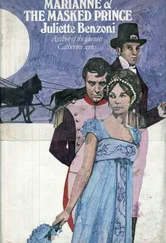Wilhelmine, her friend, was repulsed by Berta’s incapacity to keep her doubting and brooding compulsion from getting in the way of her children’s upbringing.
“Berta! My little catastrophe! Your children have no use for your doubts and brooding! They need a steady hand, Berta! Don’t fuss for so long. Just say yes or say no and then stick to it! One time this way, one time that way, it makes people lose perspective, if not their minds to boot! You’ve got no backbone!”
And yet if Berta would go on insisting her children be cautious and flexible, before later switching gears with Little Rudolf or Little Berta, or both at the same time, this was because, irrespective of Wilhemine’s resolute example, Berta — so fickle, so soft and acquiescent — did indeed lack a backbone.
Berta Schrei was thankful for every hour allowed to her for raising her children. She brought them up with heartfelt devotion, and considered it a lost opportunity, something to be mourned, if at any hour she failed to share an important life lesson with her two little sprouts; she would bewail herself, bemoan herself, bethink herself a bad mother, swear to improve until the next unpardonable oversight, which she would aspire to correct at the first available opportunity. That is how she brought her children up — with great ardor — until the year 1958.
BERTA GREETS WILHELM; DOES BERTA SCHREI HAVE A VISITOR?
Berta said: “So. So,” and a drawn-out, seemingly endless sigh rose from her ribcage. Whenever Berta used to sigh that way, Wilhelm always smothered her fears, misgivings, doubts, and broodings about her children with his smile and his bits of chauffeur-philosophy.
By now Head Nurse Gotaharda had left Ward 66 to the visitor and his secrets, and the Wise Little Mother watched Wilhelm and Berta closely from the corner of her eye. Scarcely ten minutes had gone by since the Wound of Life had made its treacherous entrance into the Wise Little Mother’s realm. It was that whore of a Head Nurse, who threw herself into the arms of anyone who came her way, who had befouled their corner of eternity, and it weighed upon the Wise Little Mother now, a heavy burden. The old woman resolved to alert Berta to the evil forces around her.
“You must reflect on what is happening here, Berta dear. Reflect and be careful. Life is a wound, and this wound … this wound is slow to heal.”
Thrice she made the sign of the cross with her right hand, staring straight at the grating over the window, thrice more made the sign of the cross staring straight into the bars of the cage, and then turned back to Berta: “Life, so say the wise, appears incurable.” From her bed the old woman peered up at Wilhelm. “Bring word of life, and you bring pain. Bring word of death, and you bring deliverance. So it is. Indeed. Are you bringing deliverance then?” she purred at him.
Berta giggled, and the Wise Little Mother laid her hand on Berta’s shoulder, whispering serenely, “Yes indeed, our Berta has a visitor. Berta Schrei , is it? Berta Schrei has a visitor? Is that right? Does Berta Schrei have a visitor?” A murmur coursed through the rest of the ward. Berta Schrei has a visitor. Does Berta Schrei have a visitor?
Tears streamed over the face of Eulalia Mondschein, and she proclaimed, with mounting intensity: “All my fault! My own irreparable fault!”
Viktoria Löffelholz shouted “Oh!” clapped a hand over her impertinent mouth, and then looked over at Wilhelm, begging his pardon, before vanishing beneath her bed, where she cowered, ashamed, until the visitor took his leave.
“Without a doubt. Life is visiting Berta. Berta Schrei. And life … We know this, don’t we, my dear Berta? We know this. Life is hope and hope is a wound. Yes indeed. It’s come full circle. Isn’t that so?”
And turning to Wilhelm, she brought her observations to a close: “Did you not know? Did you not know that hope is a wound? What do you know then?”
She scuttled back to her bed, twiddled her thumbs, and prayed her “Hail Mary, full of grace …”
BERTA SCHREI HAS A VISTOR
In Ward 66, on the 13th of January 1963, it was apparent that the Little Mother must once have sung in the church choir, for only a trained singer could sing as well as the Wise Little Mother did.
“Hail, O star of the ocean, God’s own mother blessed!” The newness of the sound remained new, and it raised gooseflesh up and down Viktoria’s spine. Eulalia’s body began to rock back and forth, faster and faster, and her guilty conscience overwhelmed her: to temper her tears, she kept glancing at the cage, beseechingly, and this helped her to banish her sickness back inside her body. Eulalia felt the old need, so long in abeyance, but now vital, even urgent, for self-recrimination, to still the gods’ wrath and arrive at some insight capable of striking a decisive blow against her illness:
“Eulalia, Eulalia, behave yourself. Eulalia. Eulalia. Don’t take more blame on your shoulders. Eulalia. Eulalia. It’s just your disease. You can’t give in. Eulalia. Eulalia. Speak the words that will banish your sickness. Speak them yourself, or else let the gods speak them. Eulalia. Eulalia. Everything is fine. What’s trying to come out of you isn’t you, Eulalia. No. It’s the sickness. Eulalia. Eulalia.”
It seemed the Wise Little Mother had successfully initiated a general rebellion against life — which just today had wormed its way with such shameful presumption into Ward 66. She took note of her victory with equanimity, and with equanimity she struck up her song one more time, from the beginning.
“Hail, O star of the ocean, God’s own mother blessed!”
Berta giggled. She said: “So. So.”
Wilhelm looked down at his right hand and concluded he had five fingers on it, and the same for the other one too: not three, seven, or twelve. This somehow impressed and emboldened him a great deal; he almost felt himself the sort of man who could face life’s ups and downs without fear.
“Berta, my dear. I’ve brought you something,” he said, and laid the bouquet of roses gently on her lap. Berta looked up, lowered her eyes again, then her hands twitched slowly upward in the direction of her neck, feeling for the necklace with the tiny Madonna inside her institution uniform.
THE NECKLACE WITH THE TINY MADONNA
Berta Schrei always spent a long time observing her Madonna trinket carefully in the washroom mirror; in the mornings, before the fortress day began, and in the evenings, before the fortress night, and during the morning and evening ablutions, she was always the second-to-last — and the Wise Little Mother the last — in the line of miserable souls into and out of the washroom … and for good reason.
For Berta Schrei was the only one in the entire fortress with a necklace with a tiny Madonna.
For years, the struggle to win back this prize had been waged by the shy and brooding and not at all shrewd Berta with surprising ingenuity and tremendous shrewdness, day in and day out. Yet in the end she had only to win the support of the Wise Little Mother, who entered into tireless negotiations with Nurse Franziska Querbalkner — remarkably, as the old woman’s general preference was to have nothing to do with Querbalkner whatsoever.
To have recruited the old woman, this tireless servant of the fortress regime, as her own sworn advocate in a battle against that very same institution — this was a great triumph for Berta, and had made all the difference in her struggle. From then on, her hope of getting the necklace back from the fortress’s administration soared, onward and upward. Until finally, on the very day when Wilhelmine had married Wilhelm, Berta got her Madonna back at last.
It was on that day — Berta’s birthday — that Nurse Franziska smuggled the necklace out of the fortress depository and passed it to Berta, adding emphatically that she should hide this diadem of hers — that was the nurse’s word — as safely as possible inside her institution uniform. “If you don’t keep an eye on that diadem of yours, it’ll get lost again— forever , Berta. Understand? So be careful. Don’t forget. Keeping it safe will be an almost impossible task! To accomplish it will require constant attention and watchfulness and great cleverness too — for the man who makes light of what he’s won is never able to defend it, and the man who doesn’t know how to defend what he’s won will lose far more than just his treasure!”
Читать дальше











